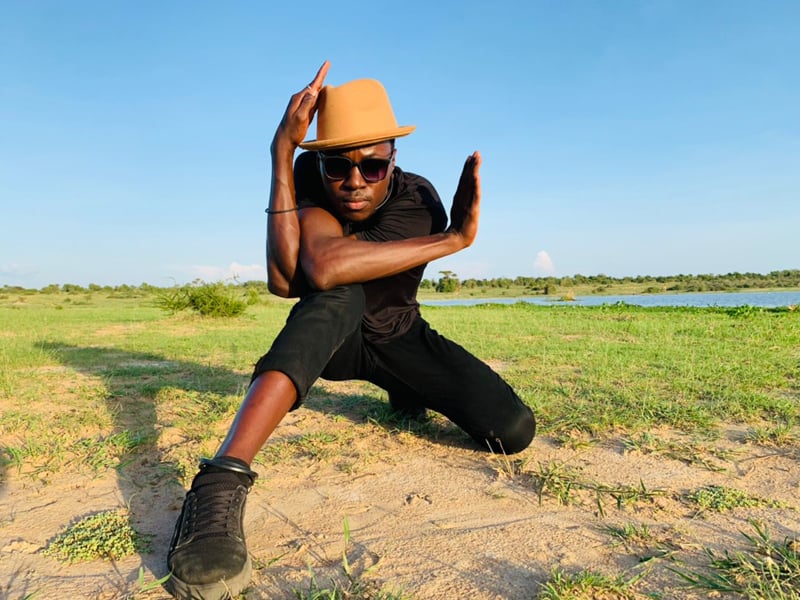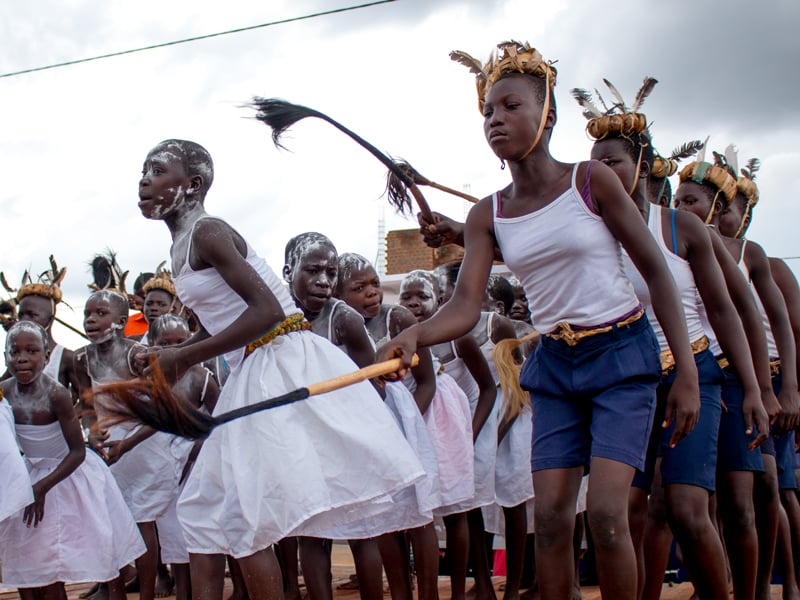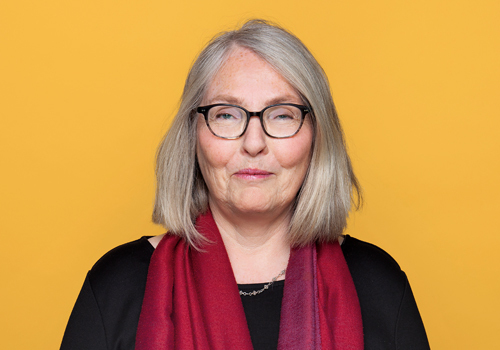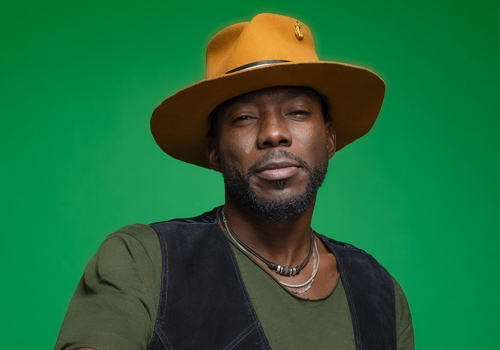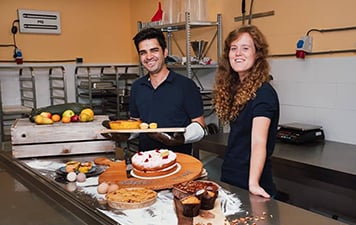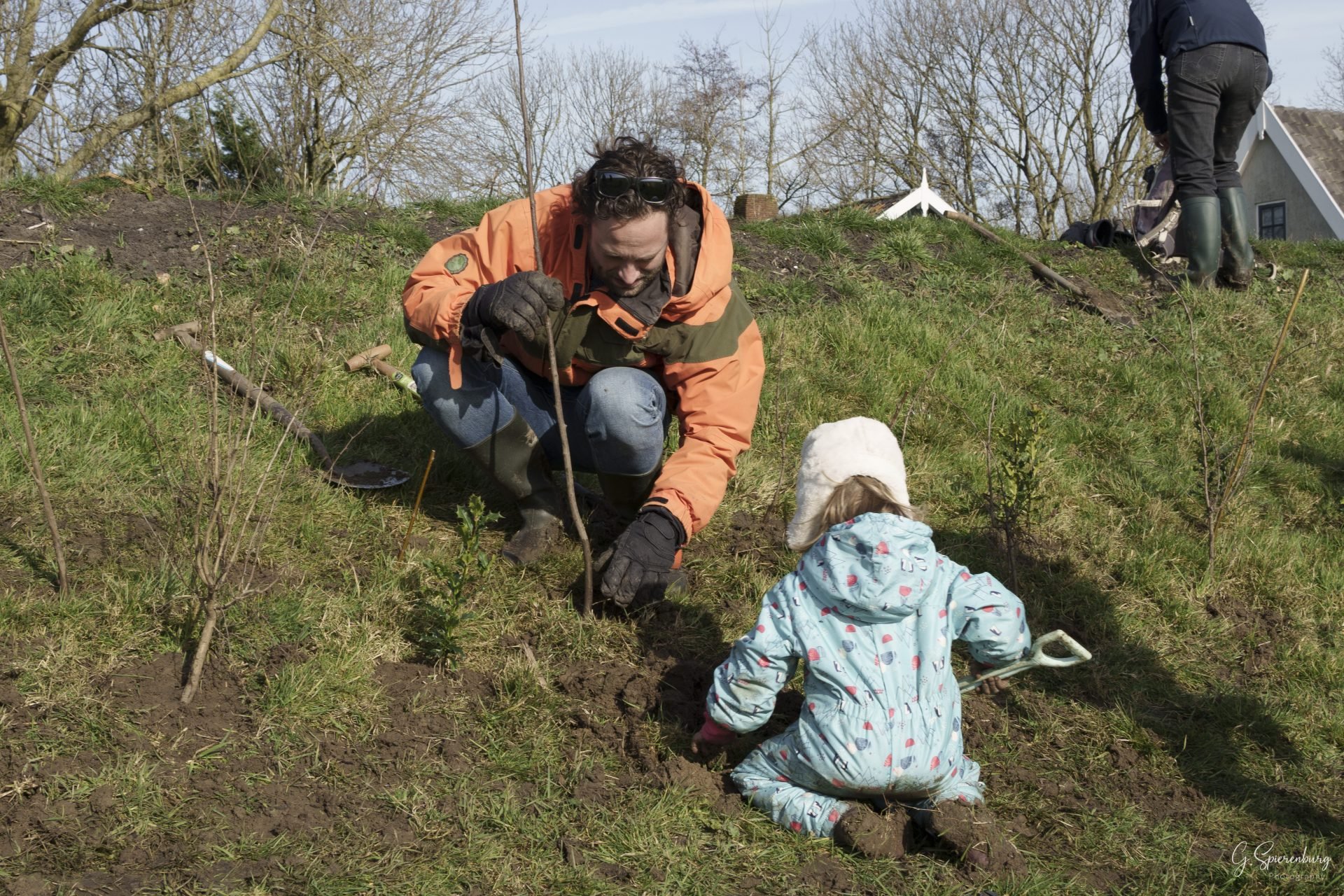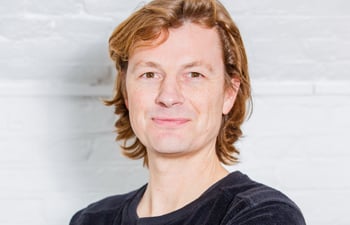Batalo East is Uganda's premier organisation for young dancers. By linking them with local communities, it encourages dialogue between diff erent worlds, between traditional and contemporary cultures and across generations. Batalo East organises activities based on social themes, opening up diffi cult topics for discussion by a broad group. In this way, it supports young dancers in their quest to shape their identities against a rapidly changing social backdrop.
A changing society
Uganda is a country of stark contrasts and huge cultural diversity. Each region has its own traditions and customs. Life in the capital, Kampala, differs greatly from that in the rural areas, and the gap continues to widen. Increasing urbanisation and far-reaching globalisation are bringing pressure to bear on local traditions. Young people are most interested in urban dance and music styles from outside the country. Those living outside the cities often find themselves confronted with art forms, role models and ideas that have little to do with the reality they know.
Dance as a means of expression
In the absence of safe places for young people to share and express their creativity, a vibrant underground breakdance scene emerged in Kampala at the beginning of the century. Many young people were looking for ways to shape and communicate their identities. Batalo East was founded in 2012 at the heart of this creative scene. The organisation raises young people's awareness of traditional African dance and its cultural importance and provides a safe place where people can work together, exchange experiences and improve their dance skills.
Co-creating performances
Batalo East’s reach extends well beyond Kampala. With its Kuhamahama nomadic dance movement training programme, the organisation travels through different regions of the country, working with local schools, government bodies and communities. Wherever Batalo East goes, it brings together young dancers, musicians, instrument makers, villagers, teachers and chiefs to exchange stories about happenings in the region and then create a dance performance together.
Getting people moving
Exchange and cooperation are key at Batalo East. In addition to workshops and performances, it organises lectures with leading figures from the arts and cultural sector. It also initiates international partnerships with like-minded organisations, such as Don Sen Folo in Mali, with which DOEN helped to engineer contact. Its annual Batalo Dance Festival attracts a great many visitors. And around 40 students graduate each year from its Batalo Dance Academy. Whether they’re talking to the king of a local community or making children from refugee camps laugh, the Batalo East crew move people wherever they go.
